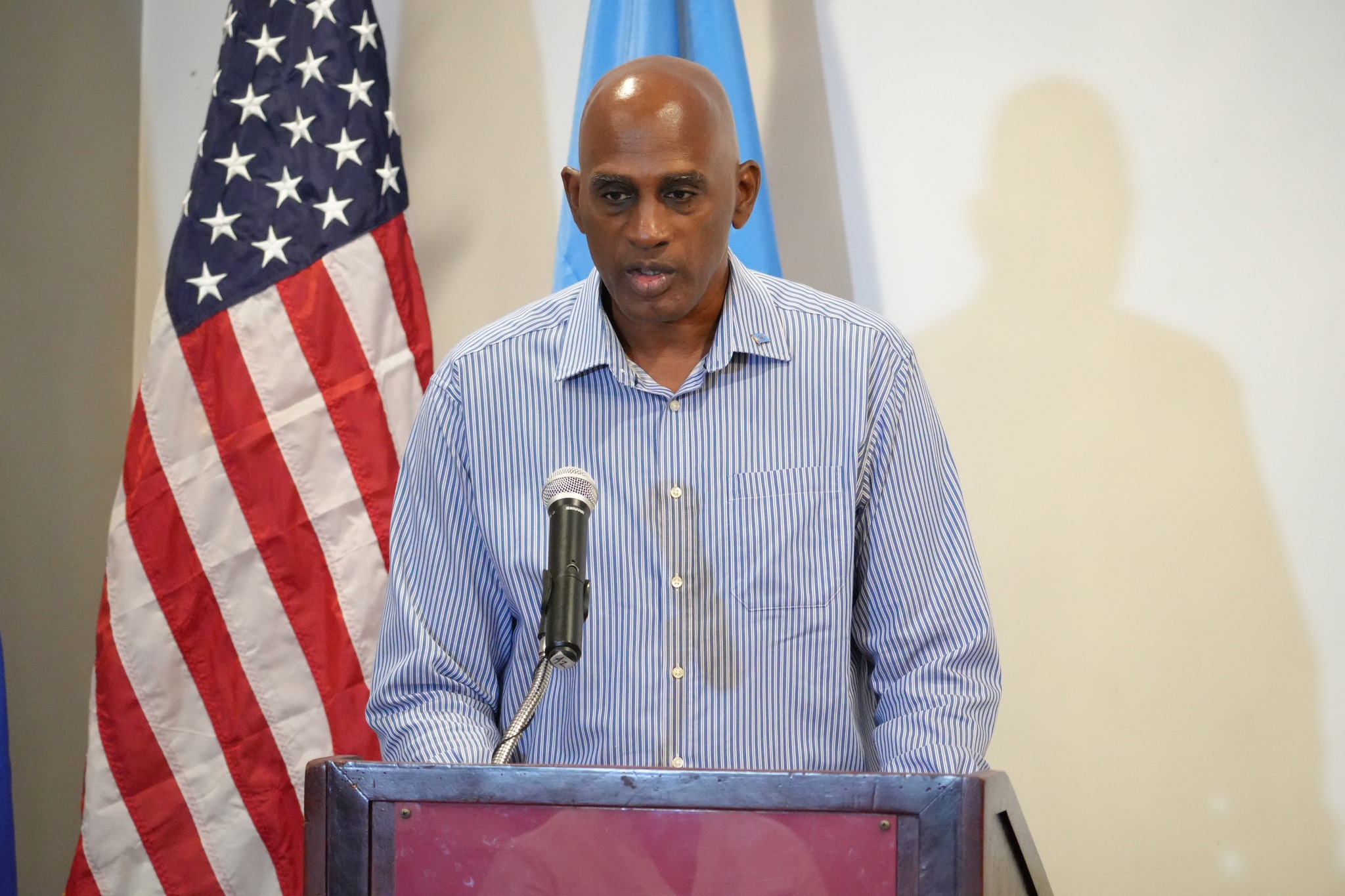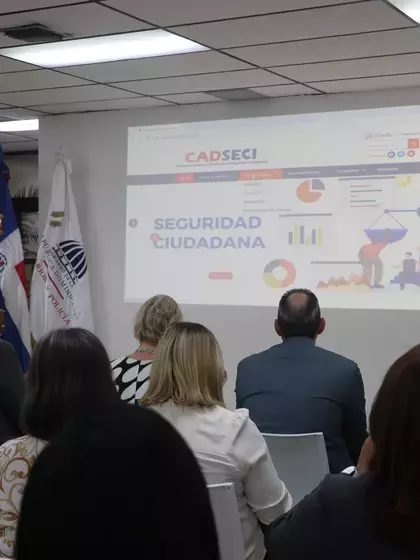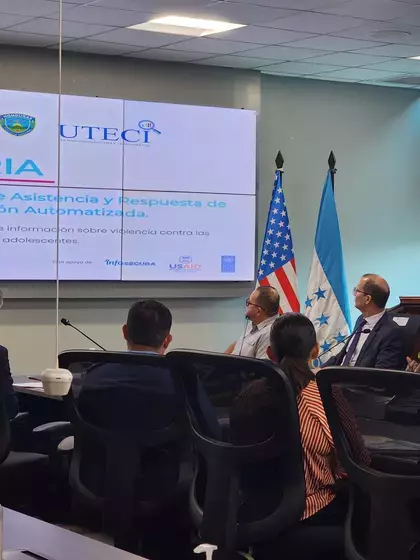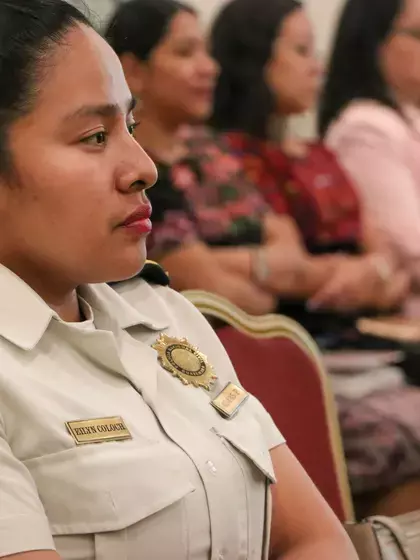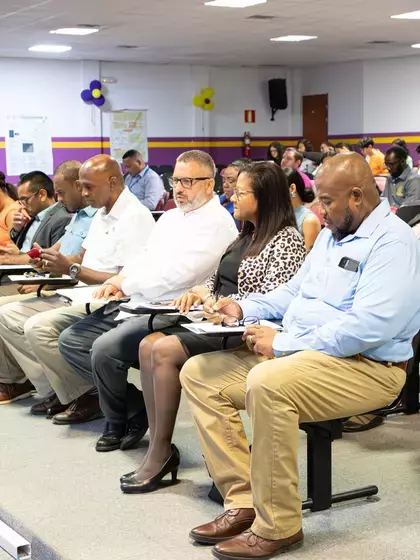Laboratory Information Management System supports citizen security in Belize
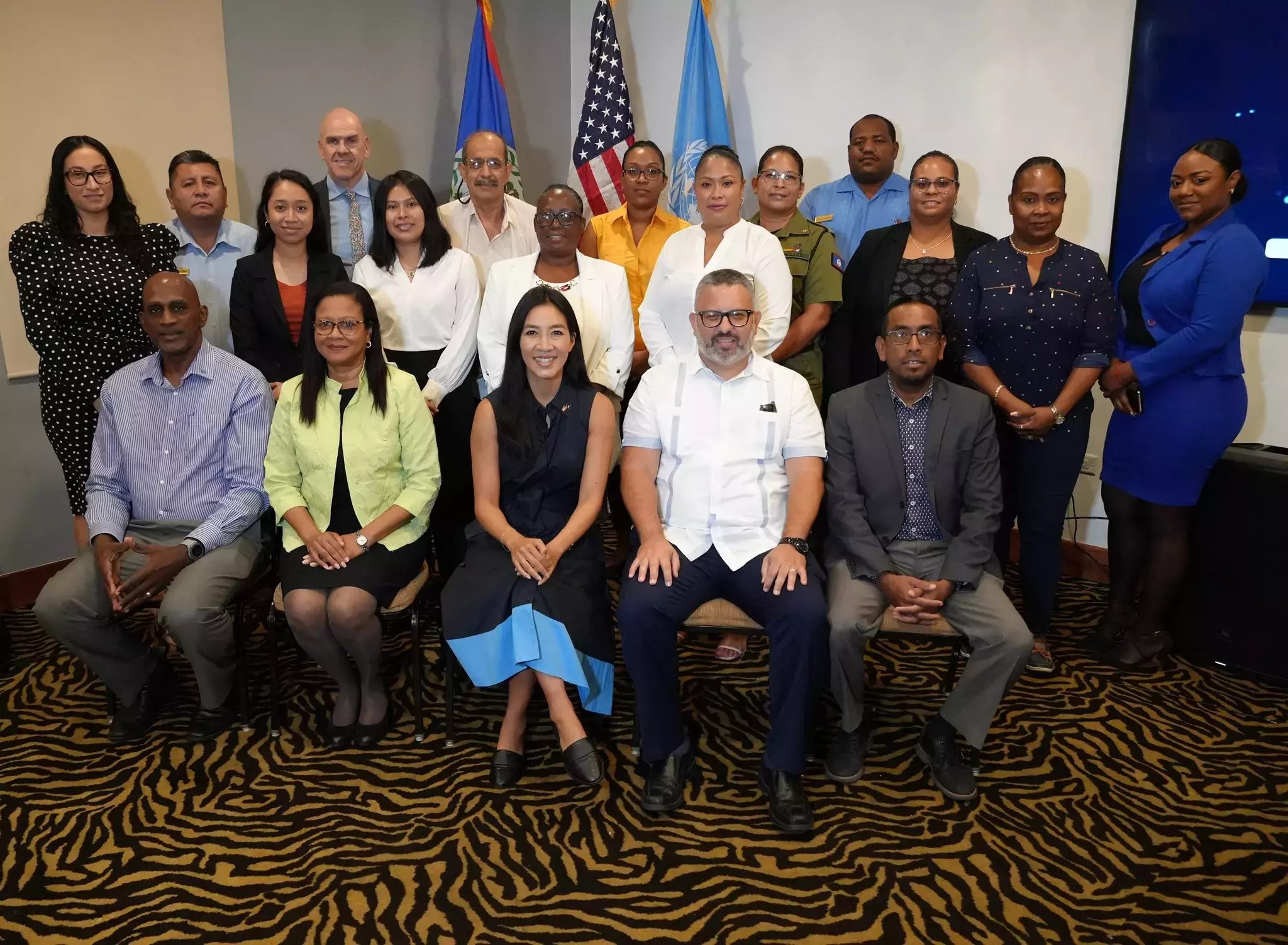
The InfoSegura Regional Project, implemented by the United Nations Development Programme (UNDP) in partnership with the United States Agency for International Development (USAID) joined the Minister of Home Affairs and New Growth Industries to launch the Laboratory Information Management System (LIMS) a fully operational system that enables the National Forensic Science Service's Forensic Laboratory to inform decision-making processes with evidence in Belize.
Digital transformation is a priority for the UNDP and for InfoSegura as well. It is intended to be deliberately inclusive and carefully designed and implemented to ensure that people are at the heart of all processes. The aim of people-centred digital transformation is to build a more open, transparent and accessible society where no one is left behind. One such system is LIMS, which provides timely information on the state of citizen security for use in designing and implementing effective public policies to support, reinforce security and reduce violence in Belize.
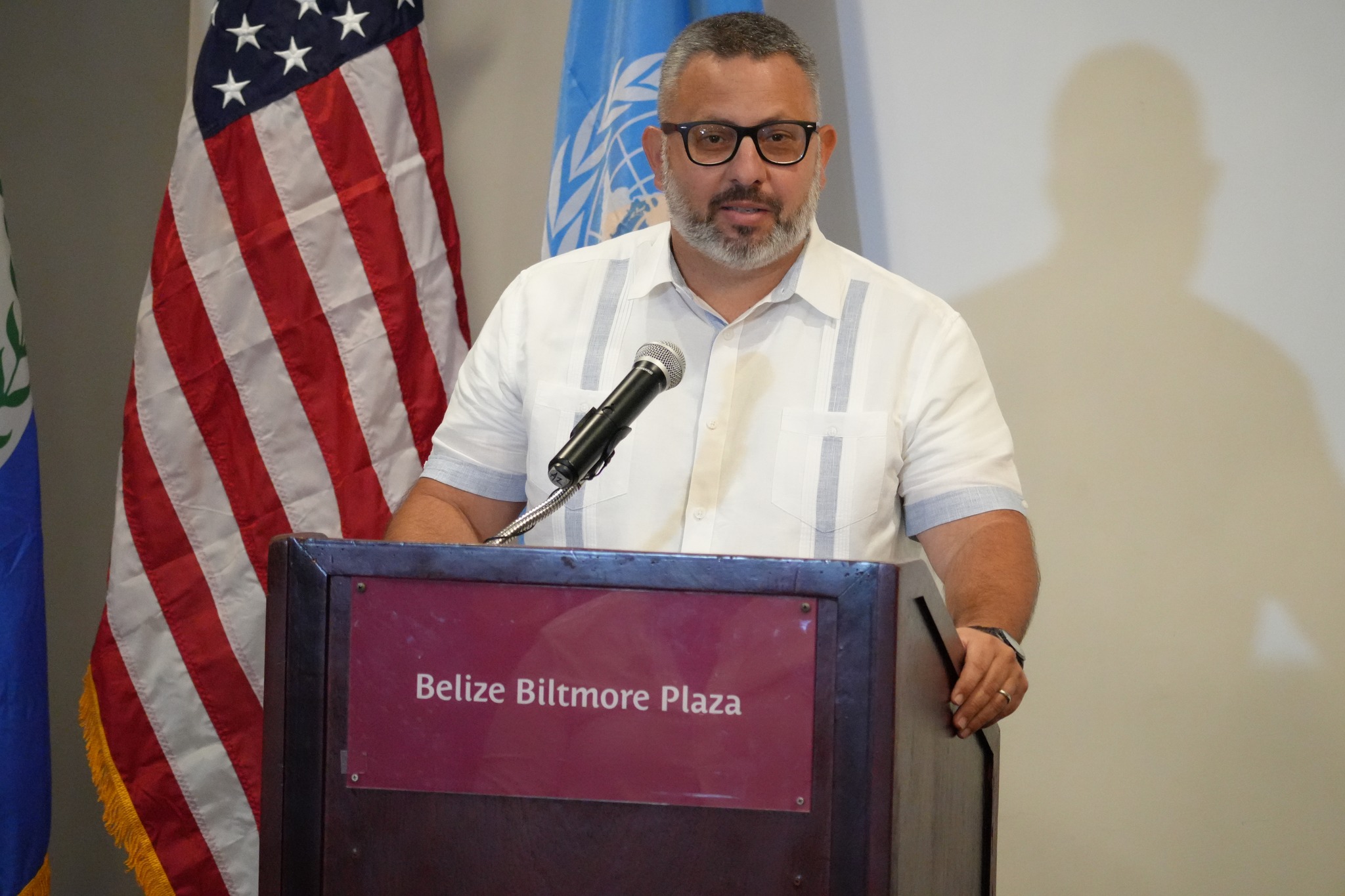
"It was just one year ago in April 2023 when we invited you to the project launch for this modernized LIMS, and I am happy to say that we have come full circle in completing this initiative which was made possible via the InfoSegura Project. This LIMS will allow the Forensics Department to improve its workflows and coordination with stakeholders since records have been digitized and processes digitalized. I look forward to the contribution this system will make towards data-informed public policymaking and decision-making for the betterment of our criminal justice system.”
Kareem Musa, Minister of the Ministry of Home Affairs and New Growth Industries.
Over the course of the year of installation and implementation, approximately 30,000 cases were uploaded from an initial database. Three hundred police officers across the country have received training in the use of the LIMS. Additionally, law enforcement officers have uploaded 512 new cases.
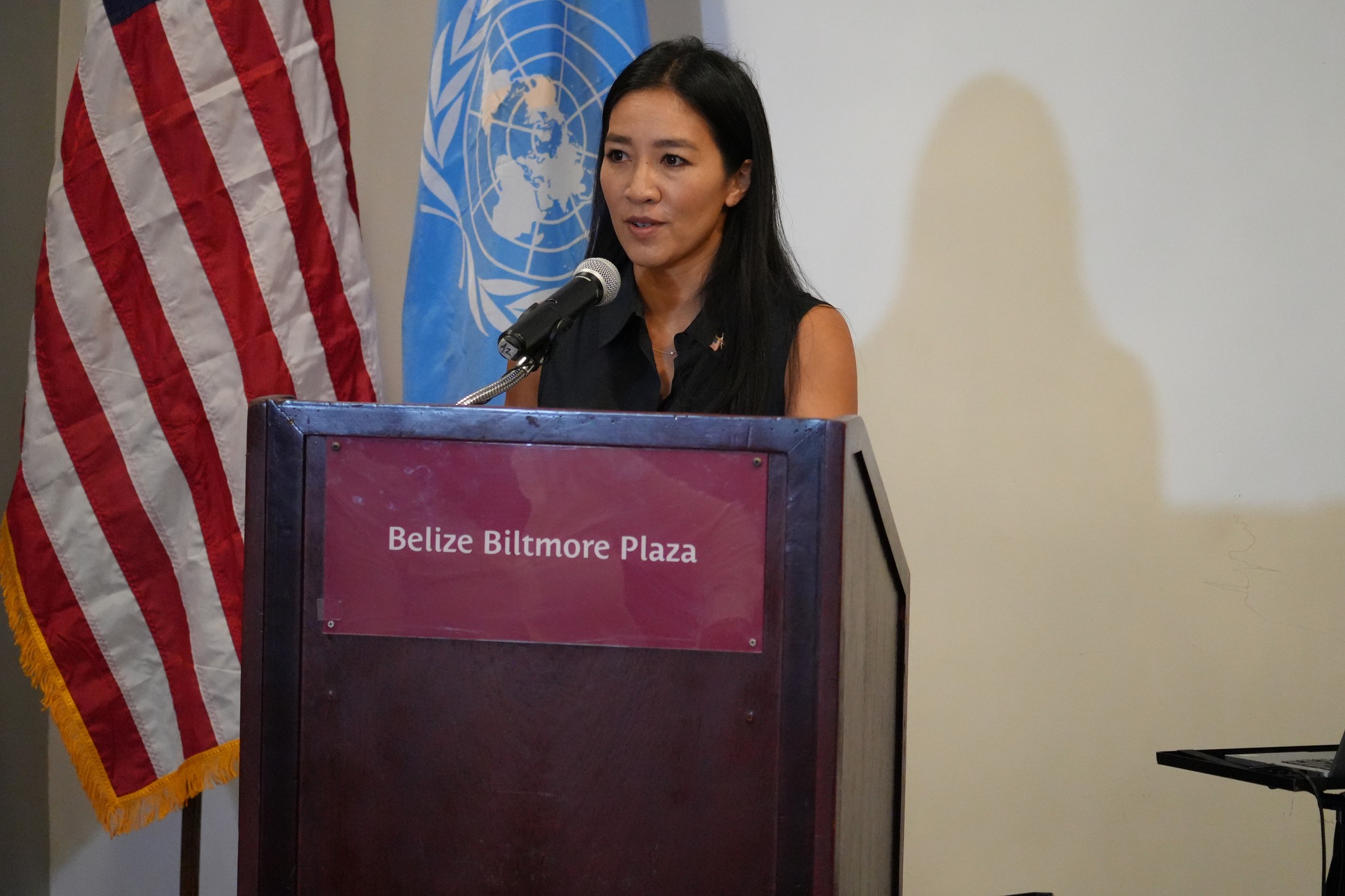
“LIMS fulfils a key objective of the Belize Crime Observatory’s strategy. This inauguration marks a milestone in the robust and growing U.S.-Belize partnership focused on enhancing citizen security and access to justice for Belizeans.”
Michelle Kwan, United States Ambassador to Belize
Digital technologies are emerging as a crucial catalyst for achieving the Sustainable Development Goals (SDGs) by 2030. Belize is one of the many governments around the world that are rapidly expanding the use of digital technology. This expansion creates opportunities to provide services in a more responsive and effective manner for citizens, including women.
"We aim to implement and achieve the 2030 Agenda for Sustainable Development, this initiative allows us to move forward on Sustainable Development Goal (SDG) 16, seeking to promote just, peaceful and inclusive societies and SDG 5, seeking to target the elimination of all forms of violence against women and girls by enhancing access to justice through a comprehensive Information and Communication Technology framework.”
Ian King, UNDP Deputy Resident Representative in Belize.
LIMS will support the National Forensic Science Service to acquire and develop other information management systems that can feed into the Intelligence Architecture and strengthen the interagency sharing mechanism to conduct more comprehensive capture of multi-dimensional data to build more just and cohesive societies.

